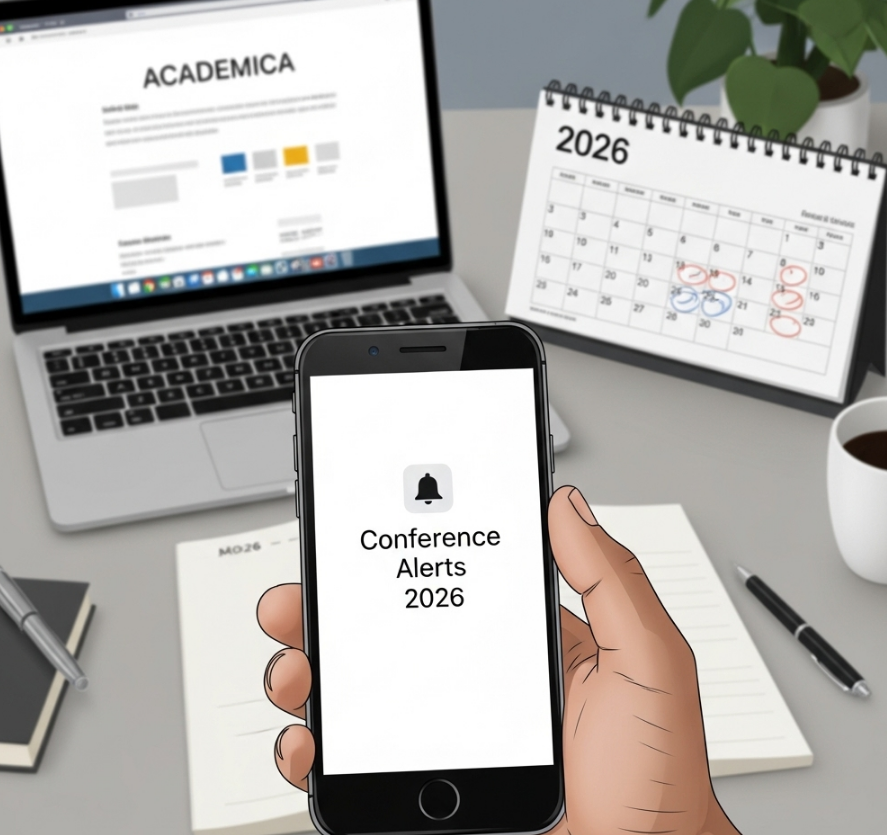

229 views||Release time: Sep 01, 2025
As the 2025 academic year progresses, researchers, PhD students, and professors are already planning for 2026. A crucial part of this planning is identifying the right conferences to present research, network with peers, and stay current with the latest advancements. This is where "conference alerts" become an indispensable tool.

This guide explains how to effectively use conference alert services to find and track academic events in 2026, ensuring you never miss a key deadline.
A conference alert is a notification service that informs you about upcoming academic conferences in your specific fields of interest. Instead of manually searching countless university and society websites, these services aggregate thousands of "Calls for Papers" (CFPs) into a single, searchable database. Users can typically subscribe to receive personalized email alerts based on their chosen disciplines and keywords.
Given that it is now September 2025, the deadlines for many major 2026 conferences are rapidly approaching. Using an alert service is critical for:
Staying Ahead of Deadlines: Submission deadlines for mid-2026 conferences often fall between late 2025 and early 2026. An alert ensures you have ample time to prepare your manuscript.
Discovering New Opportunities: These platforms often list niche workshops and emerging conferences that you might not find otherwise.
Saving Time: They streamline the search process, allowing you to focus on your research and writing.
Global Reach: Easily find conferences not just locally, but in specific countries or regions you wish to travel to for your professional development.
While there are many services available, a few have become standard resources in the academic community:
All Conference Alert: A widely used platform that provides alerts for a vast range of disciplines across the globe. It allows for filtering by country, subject, and date, making it easy to find events scheduled for 2026.
Conference Alerts.com: Another major player that offers a comprehensive directory of upcoming conferences, seminars, and workshops. Their subscription service allows for highly customized notifications.
WikiCFP: A community-driven list of "Calls for Papers," especially popular in the fields of computer science, engineering, and technology. It is an essential tool for tracking submission deadlines.
University-Hosted Lists (e.g., UPenn CFP List): For disciplines in the humanities and social sciences, lists maintained by university departments are often a highly curated and respected source of conference information.
To make the most of these services, follow this strategic approach:
Identify Your Keywords: Be specific. Instead of just "engineering," use keywords like "robotics and automation," "sustainable materials," or "machine learning applications."
Select Your Disciplines: Choose both your primary field and any relevant secondary or interdisciplinary fields you are interested in.
Set Your Geographic Preferences: If you are planning to travel, select the countries or continents you are targeting for 2026. If you have budget constraints, you can focus on your home country or region.
Subscribe and Customize: Sign up for email alerts on one or two of the platforms mentioned above. Set the frequency of notifications (daily or weekly) to suit your preference.
Vet the Conference: Once an alert catches your eye, always visit the official conference website to verify its legitimacy, check the organizing committee, and review the quality of past proceedings.
By setting up your conference alerts now, you can ensure a well-planned and productive 2026, filled with opportunities to advance your research and academic career.